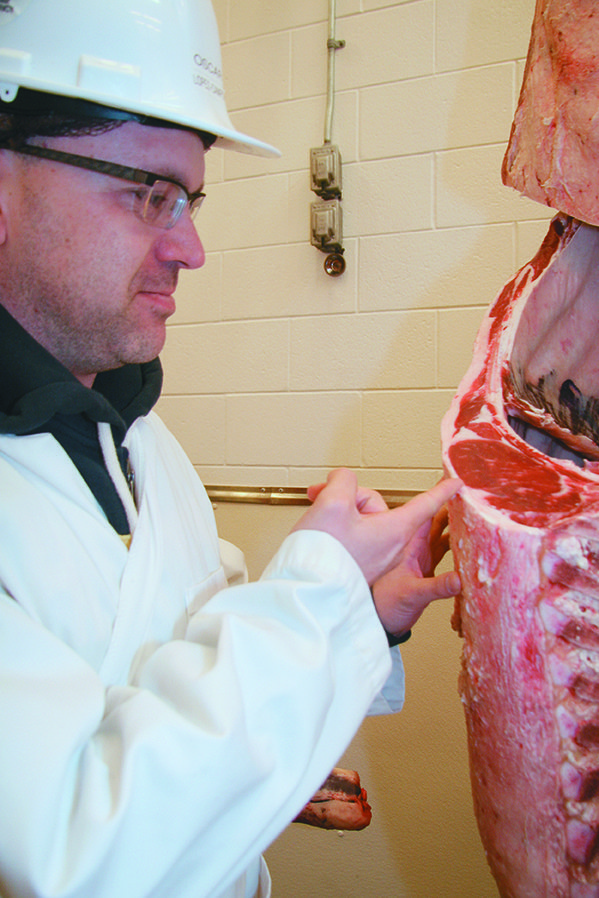Food safety crises often lead to better things. The XL Foods recall, the largest in Canadian history, happened just over a year ago, and has arguably had a positive impact on industry and regulations alike.
The latest Gort’s Gouda Cheese Farm recall involving raw milk cheeses will likely not be an exception either. In that case, one person died and another 22 were made ill from E. coli O157:H7.
Over the years, most recalls have barely affected how consumers perceive risks.
Read Also

Trump’s trade policies take their toll on Canadian producers
U.S. trade policy as dictated by president Donald Trump is hurting Canadian farmers in a multitude of ways.
The XL Foods incident, in which 18 people became ill with E. coli O157:H7 infections after eating beef from the Brooks, Alta., facility, failed to significantly affect the relationship Canadian consumers have with their favourite steaks.
Purchases of bovine proteins have remained fairly robust even though sales have continued to dwindle for the past 25 years or so.
Industry-wise, some key players have also changed for the better. In government, after a public mea culpa, the Canadian Food Inspection Agency is aggressively addressing long-standing organizational issues for the betterment of our food safety systems.
First, the XL Foods recall led to a change in management and, soon after, ownership. The transition literally happened during the investigation. Brazilian giant JBS’s arrival in Brooks, Alta., was welcome news for many local stakeholders. The influx of capital and expertise from international markets has allowed the plant to keep its employees and improve processes.
Most importantly, JBS’s culture on risk management contrasts with that of the former owners, and aligns more effectively with our federal regulations in food safety.
At the same time, the CFIA has become a better regulator as a result of the recall. When it comes to oversight and inspections, the XL foods recall allowed the agency, and perhaps the public, to understand that capacity is not necessarily as important as how risk monitoring actually manifests itself on site.
The agency’s newly adopted risk-based inspection oversight is a refreshing change for both industry and government. It is a more structured approach to analyzing risks in an open system, which means our system will not only be more connected with other countries, it will also become more transparent and customized to any establishment’s compliance history.
In other words, risk surveillance will now become more strategic and consumers will now have the ability to understand what goes on during inspections.
In the domain of risk communication in the era of modern social networking, this can only make more sense. Interconnectedness between the agency and the consumer, which has been a challenge for many years, will be more apparent.
The other uplifting change has been the unequivocal recognition that inspectors need training and that standards applicability needs to be more uniform across the board.
In order for industry to be compliant, it needs consistency in terms of how regulations are interpreted by those upholding them, that is, the inspectors.
This is a godsend for industry, and more so for consumers. In the end, the powers of nurturing the culture of food safety will supersede the lingering paradigm, which suggests that more inspections offer safer food for Canadians.
Consumers are sometimes confused about food safety and why blame them? Industry and regulators alike are equally confused about how to communicate risks to the public.
At some point, media will have to play a secondary role to the CFIA as our country’s premier food safety information outlet. These shortcomings are slowly being addressed.
Climate change, consumer choices, and even our unclear economics are making risks more challenging to foresee.
As such, the CFIA and industry need to be predisposed to adaptable methods of managing risks, which is the intent of this new approach by the CFIA.
The devastating effects of the XL Foods recall were not in vain. There is evidence that we’ve learned from it. Let’s make sure the learning process continues as we move on to the next major recall.
Sylvain Charlebois is associate dean at the College of Management and Economics at the University of Guelph in Ontario. This article was distributed by www.troymedia.com.















